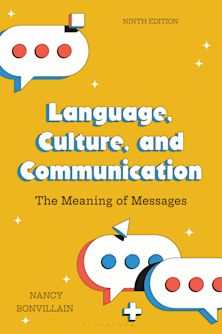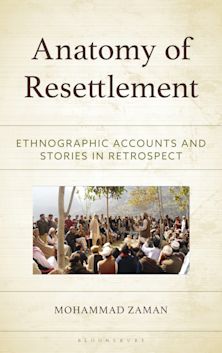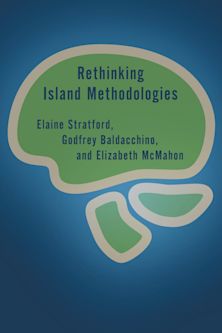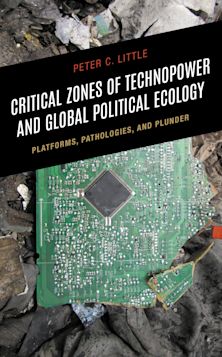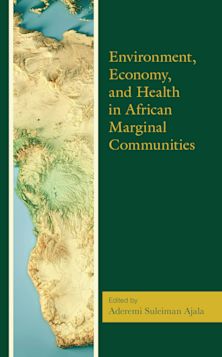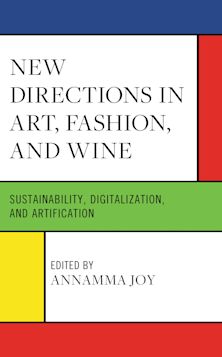- Home
- ACADEMIC
- Anthropology
- Anthropology - Other
- Fiction and Social Research
Fiction and Social Research
By Ice or Fire
- Textbook
Fiction and Social Research
By Ice or Fire
- Textbook
For information on how we process your data, read our Privacy Policy
Thank you. We will email you when this book is available to order
Buy from Bloomsbury eTextBooks
You are now leaving the Bloomsbury Publishing website. Your eBook purchase will be with our partner https://www.vitalsource.com.
Your credit card statement will show this purchase originating from VitalSource Technologies. They will also provide any technical assistance you might require.
You must sign in to add this item to your wishlist. Please sign in or create an account
Description
Fiction and Social Research brings together writers from a variety of disciplines to explore and illustrate the possibilities of new narrative forms in social research. At the intersections of fiction, ethnography, and cultural studies, these essays demonstrate narratives that simultaneously enrich fieldwork and enliven research reporting. By arranging this volume into four areas of concern, this volume demonstrates how fiction can express issues of representation, subjectivity, critique and postmodern discourse. This volume is unique in its accessibility and will prove a valuable tool to the veteran scholar and beginning ethnographer alike.
Table of Contents
chapter 2 Acknowledgments
chapter 3 Series Editor's Preface
chapter 4 1. Stephen P. Banks and Anna Banks, The Struggle Over Facts and Fictions
chapter 5 Part 1: Narratives of Representation
chapter 6 2. Robert Hopper, Flirtations: Conversational Analysis From Fiction and Life
chapter 7 3. Sandra L. Haarsager, Stories That Tell It Like It Is? Fiction Techniques and Prize-Winning Journalism
chapter 8 4. Michelle Miller, (Re)presenting Voices in Dramatically Scripted Research
chapter 9 5. Eugene Valentine and Kristin Bervig Valentine, Dead or Alive, You're Going to Teixido: The Teller and the Tale
chapter 10 Part 2: Narratives of Understanding
chapter 11 6. Robert L. Krizek, Lessons: What the Hell Are We Teaching the Next Generation Anyway?;
chapter 12 7. Christine Elizabeth Kiesinger, Portrait of an Anorexic Life
chapter 13 8. Leigh Berger, Silent Movies: Scenes from a Life
chapter 14 9. Sandra Coyle, Dancing with the Chameleon
chapter 15 Part 3: Narratives of Suspicion
chapter 16 10. Anna Banks, Some People Would Say I Tell Lies
chapter 17 11. Shawn Michelle Smith, On the Pleasures of Ruined Pictures
chapter 18 12. Eric M. Eisenberg, From Anxiety to Possibility: Poems 1987-1997
chapter 19 Part 4: Narratives of Vulnerability
chapter 20 13. Simon Gottschalk, Postmodern Sensibilities and Ethnographic Possibilities
chapter 21 14. Stephen Linstead, Dishcloth of Minerva: Absence, Presence, and Metatheory in the Everyday Practice of Research
chapter 22 15. Stephen P. Banks, The Tioga Tapes
chapter 23 Index
Product details
| Published | 11 Sep 1998 |
|---|---|
| Format | Ebook (PDF) |
| Edition | 1st |
| Extent | 1 |
| ISBN | 9798216223511 |
| Imprint | AltaMira Press |
| Series | Ethnographic Alternatives |
| Publisher | Bloomsbury Publishing |
About the contributors
Reviews
-
What can fiction add to our repertoire as communication teachers and researchers? Anna Banks' and Stephan Banks' Fiction and Social Research: By Ice or Fire is filled with answers...Firmly grounded in the new theories of ethnographic research writing discussed and illustrated in anthropology journals during the last ten years, Banks and Banks have produced a collection of essays that extend the communication scholars' research reporting options. Both beginning and more experienced investigators will find insightful narrative examples tucked away in nearly every chapter....The authors demonstrate practices often minimally reported in communcation journals.
Reta A. Gilbert, Eastern Washington University, Review of Communication
-
The book's value as a resource for researchers and other writers is also magnified by the editors' logical, clearly explained organization of their material and by their erudite and sophisticated theoretical introduction. This is an important book on a topic whose significance is sure to keep growing in the years ahead.
Paul Messaris, Univ of Pennsylvania, Communication Theory












